Addendum
Fernandes fights on for single ASEAN AirAsia Group
March 1st 2017
Air Asia group chief executive, Tony Fernandes, wants countries in Southeast Asia to relax ownership restrictions so he can combine his separate airline units in Malaysia, Thailand, Indonesia and the Philippines into a single listed ASEAN company. Read More »
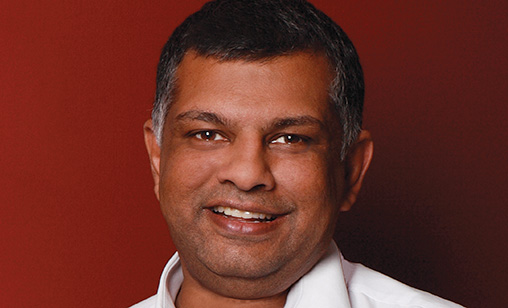 |
He made his wishes public when the AirAsia group announced its airlines across Southeast Asia made a profit in 2016. A net profit of $104.7 million in the fourth quarter to December 31 lifted the company to a full year result of $457.2 million
Indonesia AirAsia was in the black for its second consecutive quarter and AirAsia’s Phillipines subsidiary was operationally profitable after excluding a one-off charge from the disposal of legacy aircraft.
Malaysia’s AirAsia reported earnings before interest and tax with a margin of 30% and Thai AirAsia managed to pull in revenue consistent with expectations despite less than favourable conditions in Thailand.
“We are thrilled to see our investments in ASEAN beginning to pay off,” said Fernandes. The group fleet, he added, would grow to more than 200 aircraft this year.
In India, AirAsia India reported the highest aircraft utilization rate of all the short-haul airlines in the group reported with a 52% capacity increase for the year to December 31. “Our focus remains on building our footprint and introducing our low fares to many more Indian cities,” Fernandes said.
After several delays, AirAsia Japan is approaching a full launch, with the airline expecting to open ticket sales from its Nagoya base “soon” said Fernandes. He added the carrier would end 2017 with five aircraft.
Bringing its Southeast Asian operations under a single company umbrella would bring significant benefits and efficiencies to the group’s back office operations, Fernandes said. “We are urging ASEAN governments to relax ownership restrictions and consider ASEAN investors as equivalent to local investors,” said Fernandes in a statement to the Malaysian stock exchange, Bursa Malaysia.
ANA HOLDINGS buys more of Peach
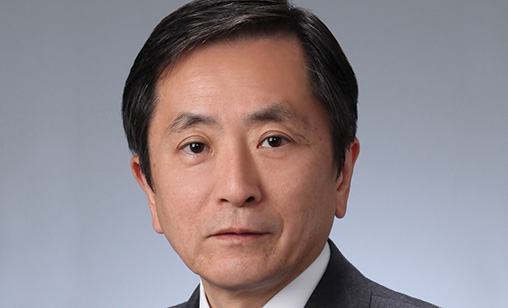 |
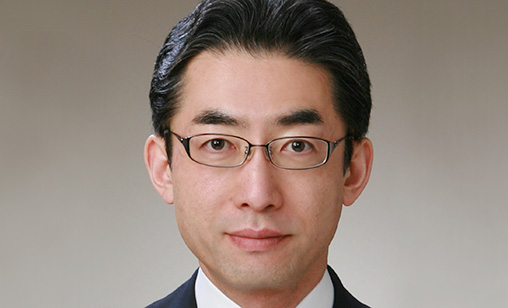 |
All Nippon Airways parent company, ANA HOLDINGS (ANAH), has increased its equity in Japan’s first budget carrier, Peach Aviation, by 28.3% after the Japanese aviation group and its two partners agreed to a share transfer, valued at 30.4 billion yen (US$271.01 million). Completion of the deal between ANAH and Hong Kong’s First Eastern Aviation Holdings Ltd and the Innovation Network Corporation of Japan is planned for April 10, subject to regularity approvals
Based in Osaka/Kansai, Peach went into profit two years after it launched in 2011. It reported an operating profit of 6.1 billion yen in 2015, a result that eliminated cumulative losses at the airline. In a March 1 statement, the three shareholders said they had decided “the best way to accelerate growth of Peach was through consolidation with the ANA Group that would leverage the LCC’s culture and brand with ANA’s proven record of airline expansionu”.
Elsewhere in the group, long time executive Yuji Hirako was named CEO and president of All Nippon Airways. He will succeed Osamu Shinobe, 65, on April 1. Shinobe will join the parent company’s board, as vice chairman, on the same day.
Hirako, 59, began his career with ANA in 1981 after he graduated in Economics from Tokyo University, He was given his first senior appointment, director of passenger services, Tokyo Airport Office, in 2004. He moved to revenue management as director two years later and was promoted to vice president corporate planning in 2010, where he played a significant role in bringing the B787 into the ANA fleet.
Within 13 months, he was named senior vice president marketing and sales and then, in quick succession, senior vice president The Americas and general manager New York , where he oversaw the launches of the Seattle, San Jose and Vancouver routes from Tokyo. He returned to head office in April 2015 as senior vice president finance, accounting and investor relations at ANA HOLDINGS and was promoted to the holding company’s board and made an executive vice president in the following June.
Engineer Shinobe is also an ANA lifer. He joined the airline in 1976 and took his first exectutive job as senior manager for engineering and maintenance planning. He rose through the ranks to become Director Engineering and was invited to join the airline’s board in 2004 when he was executive vice president corporate planning for the B787 launch project. He was appointed president and CEO of ANA in April 2013.
Garuda threatened by bookings ban
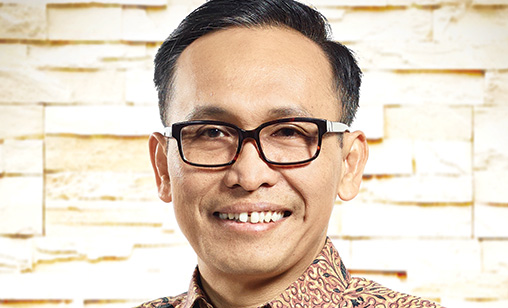 |
Garuda Indonesia is on the verge of a spurt of international growth – it will launch new services to Moscow and Los Angeles later this year – but it has hit turbulence at home after the nation’s travel agents announced last month they would boycott the national flag carrier in because of the airline’s decision to cut their commissions.
The Association of Indonesian Tour and Travel Agents (ASITA) chairman, Asnawi Bahar, said Garuda’s agency commission payments from ticket sales will be cut from 7% to 5% for international flights and by 2%, to 3%, for domestic flights.
“We will boycott Garuda nationally because its wants to decrease the commission significantly. It’s already very hard for agents with the current competition with online travel agents,” he said. The travel agents also filed a protest with the government, which owns Garuda.
The airline’s vice president of corporate communications, Benny S. Butarbutar, confirmed to local media that Garuda is reducing travel agent commissions, but suggested the move may be temporary, depending on market conditions.
“We are adjusting the business pattern with our partners at travel agents. The business situation is changing really fast. Online travel is becoming much stronger, but we will want to keep offline travel agents,” he said.
ASITA has around 6,300 members across Indonesia, including Panorama Tours Indonesia, a core unit of the Panorama Group, Indonesia’s largest integrated travel group. It sent a letter, signed by Asnawi, to its members that said: “During the period [needed] to resolve the problem with Garuda Indonesia, ASITA Indonesia has decided that all ASITA members are prohibited from participating in any activities involving Garuda Indonesia”.
The ban on Garuda’s business comes at a time when the carrier’s focus is on international expansion. It’s latest figures, for December last year, reported the group’s traffic had increased by 7.92%, with load factors lifting to 77.36% compared with 75.98% in the same months in 2015. Cargo posted an impressive increase of 23.12%.
In February, Garuda announced it would launch three times a week flights from Jakarta to Moscow with A330-200s, with August as a likely starting date. It was set in train with a Memorandum of Understanding signed by a representative of the Indonesia Russia Business Council, Mikhail Kuritsyn, and Garuda’s president, Arif Wibowo, and witnessed by the Russian Ambassador to Indonesia, Mikhail Galuzyn, and Indonesia’s Ambassador to Russia, Wahid Supriyadi.
Arif said as the tourist traffic between the two countries continues to expand, the direct flight plan is expected to support Russia’s efforts to increase tourist arrivals from Indonesia to more than 100,000 this year.
In the first half of 2016, Russian tourists to Indonesia increased by 14%. The number of Indonesians visiting Russia was about 14,000 in 2015. Arif said the Moscow route marked the beginning of an international flight network expansion program.
The airline intends to launch Jakarta to Los Angeles via Tokyo by mid-2017 after Indonesia was restored to a category 1 safety rating last August. “We are staying on course, planning to start flying there (the U.S.) in June or July,” said Butarbutar.
Down Under profits dive 25%
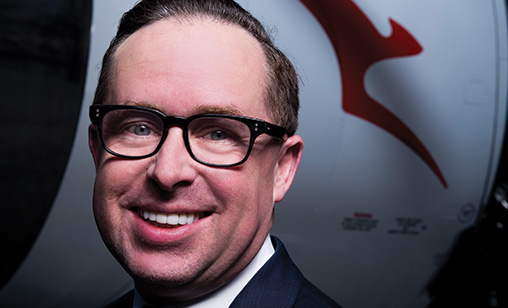 |
Both Air New Zealand (Air NZ) and Qantas Airways took a profit hit for the six months to December 31, as increased capacity and rising competition, particularly into New Zealand, shaved 24% and 25%, respectively, from previous profits.
Air NZ reported an interim profit of NZ$256 million (US$184 million) with earnings before tax at NZ$349 million. The carrier expected revenue to improve in its second half, despite rising fuel prices, and forecast earnings before tax of NZ$475 million to NZ$525 million for the six months to June 30,
Qantas reported an interim net profit of A$515 million (US$397 million) with underlying profit before tax down 7.5% to A$852 million. The airline group’s CEO, Alan Joyce, said the company’s capacity would be increased by 1% to 2% in the second half, which reflected a 3% increase in international operations and a 2% decrease domestically. The delivery of Jetstar’s first A320neo would be deferred to 2019, Joyce said.
At Virgin Australia, CEO John Borghetti, announced that the carrier, presently negotiating an alliance with China’s HNA Group, had a first half loss of A$21.5 million (US$27.5 million) in the six months to December 31, but said the profit slide was primarily due to restructuring costs. He said despite subdued trading conditions in its domestic market the group was ahead of schedule in its restructuring program.
Qantas Group CEO, Alan Joyce, will receive the Orient Aviation 2016 Person of the Year award at a celebration dinner at the China Club, Hong Kong, on Thursday March 16.
Corruption claims stalk THAI
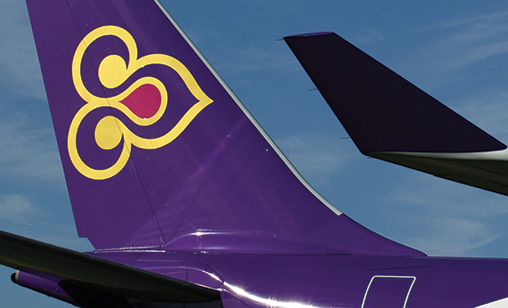 |
Thai Airways International’s (THAI) board last month issued an unprecedented rebuttal of claims by some staff that a management decision to acquire 10 A340 jets in 2002 to 2003 had cost the carrier tens of millions of dollars annually in losses.
The statement from a 100 THAI staff alleged the aircraft were being “left to rot and called on Thai prime minister, Prayut Chan-o-cha, to invoke Section 44 of the country’s interim constitution to investigate the procurement of the aircraft and extend investigations into bribery and corruption at the airline.
The public call for action followed British engine maker, Rolls-Royce’s admission in the British courts that it had made payments of $36.38 million to “regional intermediaries”, including individuals who were “agents of the state of Thailand and employees of THAI Airways” between 1999 and 2005.
The bribery claims involved THAI’s purchase of Rolls-Royce Trent 800 engines, according to the document. At press time, two separate in-house investigations into the sworn evidence were scheduled for completion.
THAI said various elements in the call for action were inaccurate and could cause misunderstanding and damage to the company. THAI has decommissioned the A340s and parked them at Bangkok’s Don Mueang airport and at U-Tapao, south of the city.
The airline admitted it had struggled to sell the aircraft because of their lack of appeal in the second hand market. THAI said the A340s were purchased when the cost of jet fuel was low and they were used to compete on intercontinental routes.
“When the cost of jet fuel became expensive, other carriers with the same aircraft type in their fleet also experienced the same problem as THAI of incurring losses and decommissioned this type.”
On several occasions, THAI operated the aircraft type on various routes but was unable to make a profit from flying the airliner. “An announcement was made of their sale, but there was little demand in the second-hand aircraft market for this type. The price was lower than the value that the company should have received.
“The plan for sale was revised and a buyer was sought that would benefit from it, for example the Royal Thai Air Force.” The THAI board said the airline was a state enterprise with strict adherence to regulations on the sale of assets that can prove to be an obstacle to selling aircraft quickly at times.
THAI said: “The company has continually placed high importance on transparency regarding procurements, evident through revisions to the procurement regulation. The company will not make procurements through a middleman; a procurement committee must be established with committee members from various departments for a balance of power,” the statement said.
Hong Kong Airlines appoints Boeing veteran as chief marketing officer
Boeing and PR branding veteran, George Liu, has joined the swelling senior management ranks of Hong Kong Airlines as chief marketing officer. Liu will rung the airline’s branding and customer experience department as the airline expands from a regional carrier to an international airline.
Liu, who has been vice president of communications at Boeing China, has spent the last decade as director Airline, Global Brand & Marketing at Boeing Commercial Airplanes. He was responsible for strategic partnerships with the company’s airline customers and collaborating with them on route launches. An MA in sociology from Ohio University, he also has worked for established regional PR agencies and represented Hong Kong’s interests in Washington DC. Under Liu’s leadership, Hong Kong Airlines will combine branding and customer experience functions to improve its customer service profile. The carrier flies to 36 destinations across the Asia-Pacific.